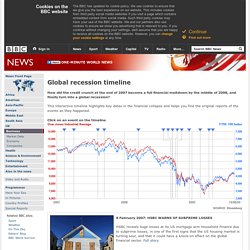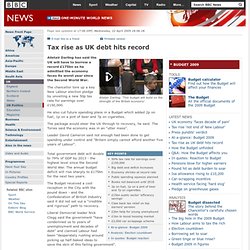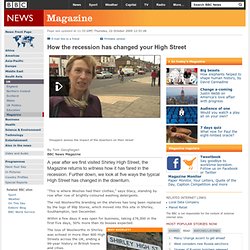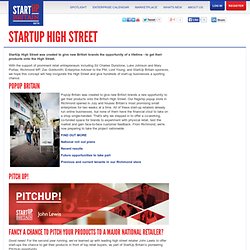

Global recession timeline. 8 February 2007: HSBC WARNS OF SUBPRIME LOSSES HSBC reveals huge losses at its US mortgage arm Household Finance due to subprime losses, in one of the first signs that the US housing market is turning sour, and that it could have a knock-on effect on the global financial sector.

Full story 2 April 2007: NEW CENTURY GOES BUST New Century Financial, a leading subprime lender, files for bankruptcy. It is the first signal that something is seriously amiss at US mortgage lenders. 9 August 2007: CREDIT MARKETS FREEZE Credit markets go into freefall after Paribas announces that two of its hedge funds are frozen due to "complete evaporation of liquidity" in asset backed security market. 14 September 2007: RUN ON THE ROCK Savers in beleaguered UK former building society Northern Rock begin withdrawing their savings after the BBC reveals the bank has received emergency financial support from the Bank of England. 17 March 2008: BEAR STEARNS RESCUE 7 September 2008: FANNIE MAE RESCUE.
Tax rise as UK debt hits record. Alistair Darling: 'This budget will build on the strength of the British economy' Alistair Darling has said the UK will have to borrow a record £175bn as he admitted the economy faces its worst year since the Second World War.

The chancellor tore up a key New Labour election pledge by unveiling a new 50p tax rate for earnings over £150,000. He also cut future spending plans in a Budget which added 2p on fuel, 1p on a pint of beer and 7p on cigarettes. Google. How-the-recession-killed-the-high-street-2190328. But Bond Street in Bristol is a markedly different story, despite being a short walk from the bustling Broadmead shopping mall.

Aside from a few new shops, a nail bar and a tailor's, the street is struggling. Ladbroke's and the sex shop Ann Summers are among the few places still open. According to a survey published by Ordnance Survey yesterday, Bristol's Bond Street may more closely resemble the future of Britain's high streets than its West End namesake, because shop closures, which were a steady stream during the last decade, have recently turned into a flood. Using address data and reports from its own surveyors, the mapping agency looked at the number and types of businesses on high streets in England and Wales two years ago, in October 2008, after the collapse of Lehman Brothers, and last month.
The North of England lost the most shops proportionately. Nonetheless, its survey echoes a report published by the Local Data Company in September, A Gathering Storm? How the recession has changed your High Street. Shoppers assess the impact of the downturn on their street A year after we first visited Shirley High Street, the Magazine returns to witness how it has fared in the recession.

Further down, we look at five ways the typical High Street has changed in the downturn. "This is where Woolies had their clothes," says Stacy, standing by row after row of brightly-coloured washing detergents. The red Woolworths branding on the shelves has long been replaced by the logo of 99p Stores, which moved into this site in Shirley, Southampton, last December. Within a few days it was open for business, taking £76,000 in the first five days, 50% more than its bosses expected. The loss of Woolworths in Shirley was echoed in more than 800 High Streets across the UK, ending a 99-year history in British towns and cities. It's a store greatly missed by Stacy Lee, 29, but her mum Carol is less reflective and comes to 99p Stores three times a week. 773_130604_final_retail_and_town_centre.pdf. A brief history of the shopping centre.
The history of the high street. StartUp High Street. StartUp High Street was created to give new British brands the opportunity of a lifetime - to get their products onto the High Street.

With the support of prominent retail entrepreneurs including Sir Charles Dunstone, Luke Johnson and Mary Portas; Richmond MP, Zac Goldsmith; Enterprise Adviser to the PM, Lord Young; and StartUp Britain sponsors, we hope this concept will help invigorate the High Street and give hundreds of start-up businesses a sporting chance. PopUp Britain was created to give new British brands a rare opportunity to get their products onto the British High Street. Our flagship popup store in Richmond opened in July and houses Britain’s most promising small enterprises for two weeks at a time. All of these start-up retailers already run online businesses, but none of them have the financial clout to take on a shop single-handed.
National roll out plans Recent results Future opportunities to take part Previous and current tenants in our Richmond store Good news!